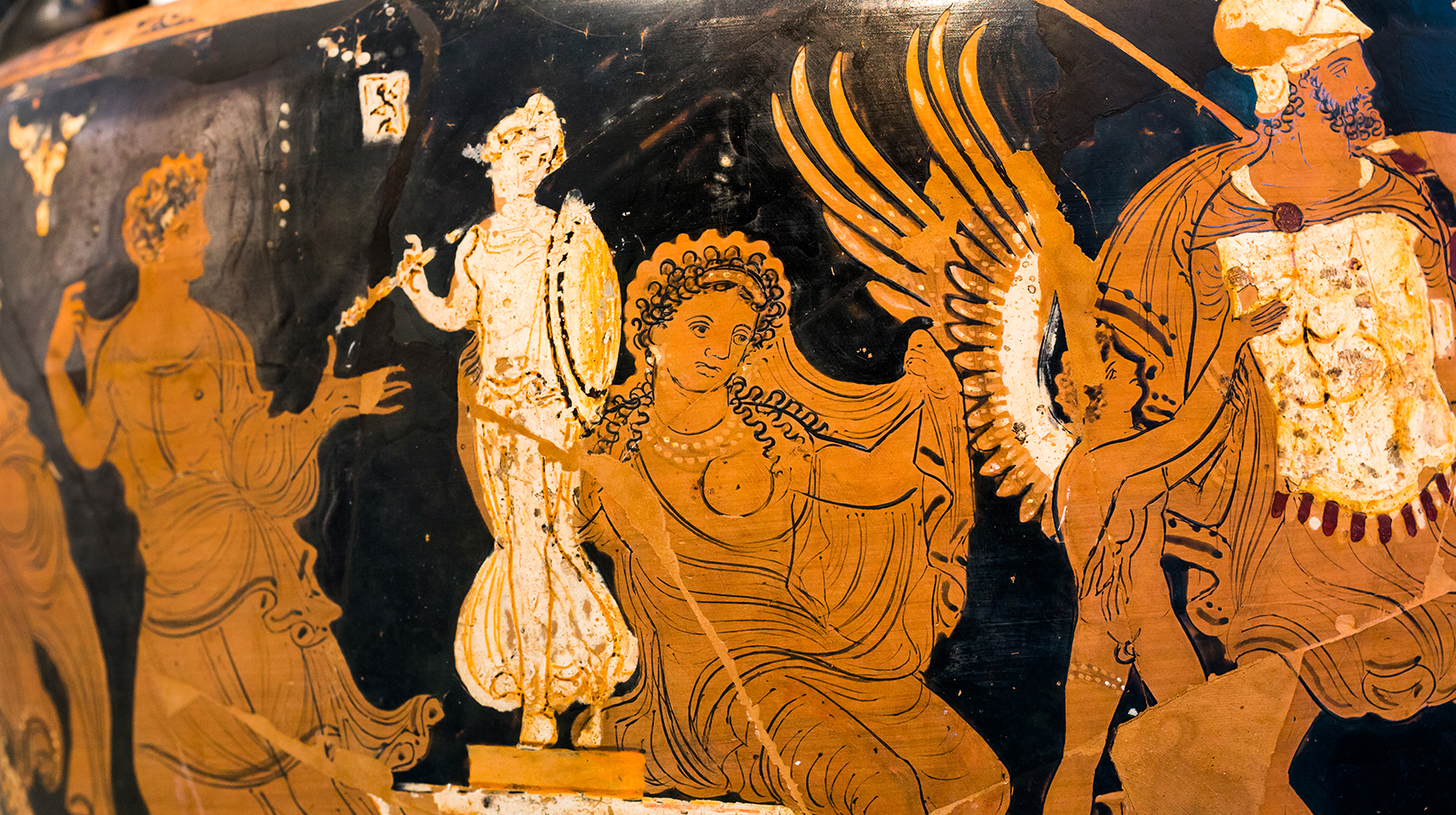Did You Know There Were Two Aphrodites and Eros?

Did You Know There Were Two Aphrodites and Eros?
In Greek mythology, there are two Aphrodites and two Eroses. In fact, to be more precise, the existence of these two characters varies according to Hesiod and Homer (and possibly other sources outside of Hesiod).
HESIOD
Hesiod says, "First there was Chaos." From Chaos, Eros is born. He is an independent entity, spontaneously arising. Eros is often depicted as an adult, and though he is mostly shown without a beard, there are also depictions of him with one.
Uranus is castrated by his son Cronus, and his sperm falls both to the earth and into the sea. From the earth, the Erinyes (the Furies), goddesses of vengeance, are born. From the sea, Aphrodite is born. The word "Aphrodite" itself means "born from foam." She was born on Cyprus.
The Eros born from Chaos also joins Aphrodite's team.
HOMER AND OTHERS
Aphrodite is the daughter of Zeus and Dione. Eros, however, is born from Aphrodite's relationship with Ares. In vase paintings or other visual arts, he is often depicted as a chubby little child with a bow.
APHRODITE
Aphrodite has a deep rage against those who do not listen to her or oppose her. Although she is the goddess of love and beauty, she is also very cruel to those who do not believe in her. Anyone who says "I do not believe in love" or "I will never fall in love" will incur Aphrodite's wrath and is often made to fall madly and hopelessly in love. (See: Atalanta, Pasiphae)
PLATO - SYMPOSIUM
In Plato's Symposium, Pausanias, one of the speakers, refers to the two Aphrodite myths. The first is "Urania," meaning "Heavenly Aphrodite." She is the daughter of Uranus and is considered noble and pure. The other Aphrodite is "Pandemos," meaning "Common Aphrodite." She represents physical and sexual relationships.
APHRODITE'S OBSESSION WITH BEAUTY
Aphrodite's obsession with beauty also led to the Trojan War. She won the title of "the most beautiful" in the first beauty contest in history by offering Helen's love as a bribe. Therefore, according to some writers, Helen should be considered the most beautiful. In contrast, Shakespeare, without taking sides in the Trojan War, says, "If the blood of thousands had been spilled and used as rouge for me, I would have been as beautiful as Helen."
HESIOD
Hesiod says, "First there was Chaos." From Chaos, Eros is born. He is an independent entity, spontaneously arising. Eros is often depicted as an adult, and though he is mostly shown without a beard, there are also depictions of him with one.
Uranus is castrated by his son Cronus, and his sperm falls both to the earth and into the sea. From the earth, the Erinyes (the Furies), goddesses of vengeance, are born. From the sea, Aphrodite is born. The word "Aphrodite" itself means "born from foam." She was born on Cyprus.
The Eros born from Chaos also joins Aphrodite's team.
HOMER AND OTHERS
Aphrodite is the daughter of Zeus and Dione. Eros, however, is born from Aphrodite's relationship with Ares. In vase paintings or other visual arts, he is often depicted as a chubby little child with a bow.
APHRODITE
Aphrodite has a deep rage against those who do not listen to her or oppose her. Although she is the goddess of love and beauty, she is also very cruel to those who do not believe in her. Anyone who says "I do not believe in love" or "I will never fall in love" will incur Aphrodite's wrath and is often made to fall madly and hopelessly in love. (See: Atalanta, Pasiphae)
PLATO - SYMPOSIUM
In Plato's Symposium, Pausanias, one of the speakers, refers to the two Aphrodite myths. The first is "Urania," meaning "Heavenly Aphrodite." She is the daughter of Uranus and is considered noble and pure. The other Aphrodite is "Pandemos," meaning "Common Aphrodite." She represents physical and sexual relationships.
APHRODITE'S OBSESSION WITH BEAUTY
Aphrodite's obsession with beauty also led to the Trojan War. She won the title of "the most beautiful" in the first beauty contest in history by offering Helen's love as a bribe. Therefore, according to some writers, Helen should be considered the most beautiful. In contrast, Shakespeare, without taking sides in the Trojan War, says, "If the blood of thousands had been spilled and used as rouge for me, I would have been as beautiful as Helen."
